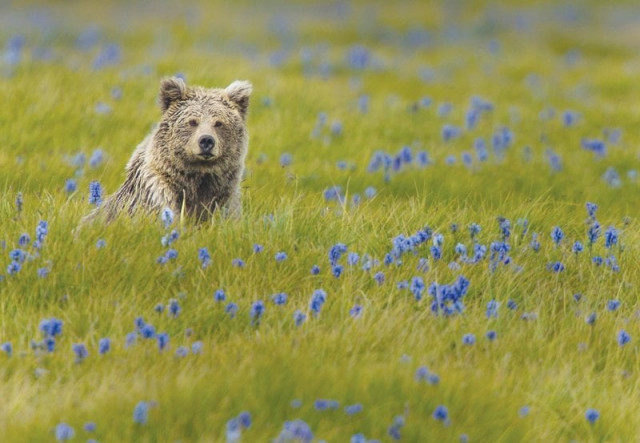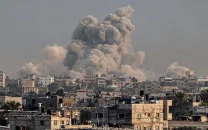Nisar Malik: Immortalising Pakistan’s nature haven
Documentary filmmaker’s ‘Give Back Project’ engages local communities and the public on environmental issues.

Malik recently released a documentary titled Deosai: the Last Sanctuary on the endangered brown bear found in the Deosai Plateau, Himalayan region. PHOTOS: WALKABOUT FILMS
Documentary filmmaker Nisar Malik has an eye for the unexplored. A spirit for adventure led him to film rare footage of the snow leopard in the northern parts of Pakistan, which was also featured in the British Broadcasting Corporation’s (BBC) critically-acclaimed documentary series Planet Earth (2006).
For someone who has spent over two decades in broadcast news media, Malik does not consider himself as a journalist. “I’ve had quite a few careers because I did not go through with my education. I dropped out of Karachi University, sat on a motorcycle and took off,” says Malik. From the coastal areas of Sindh to the diverse landscapes of China, he has lived his dream of travelling the country and beyond.

Over the time, he established his own company named Walkabout Films. He has made films for National Geographic Channel, Animal Planet and Discovery Channel and United Nations agencies.
Malik’s team recently released a documentary, Deosai: the Last Sanctuary, which focuses on the endangered brown bear found in the Deosai Plateau, located in the Himalayan region. The Deosai National Park is the sole habitat of the brown bear in South Asia. The film lays emphasis on protecting the park and its habitat, so that future generations can experience this nature haven.
But according to him, lack of preservation measures is not the only problem. “We fight to film any of these programmes. I’m not even asking the authorities to help us, I’m just saying grant us permission to [shoot the areas we wish to].” “The locals have always been fantastic. The system sometimes loses perspective and officials impede our way instead of understanding that we are making these films for our country.”
His team has also launched the ‘Give Back Project’, which aims at engaging with and educating local communities and the wider public through films focused on issues such as the conversation crisis and deforestation. He says the idea behind this is to give residents of the area featured in the documentary the opportunity to see the film. “Pakistan is rich in natural history and the project allows us to create awareness through visual information,” explains Malik, stating that the resource will soon be available to educators on the internet, free of charge.

Malik’s film for BBC titled Snow Leopard: Beyond the Myth (2007), which is narrated by renowned broadcaster and naturalist Sir David Attenborough, chronicles Malik’s journey from being a news journalist to wildlife filmmaker and search for the snow leopard. The film bagged multiple international awards including Best of Festival at the 2008 International Wildlife Film Festival in Montana, United States.
“When Attenborough saw the footage of the snow leopard, he sent our team a message saying that it was one of the best footages that he had ever seen throughout his career. This coming from a man who has seen everything to do with wildlife and nature was better than any award,” he says.
Malik’s team has filmed in areas that remain inaccessible to the common traveller for various reasons. “Pakistanis as a people are not driven to explore. We’re not adventurers,” he states. He adds that lack of infrastructure discourages people to go to places that require living in a tent, are without bathrooms and hot running water.
“So, engaging in tourist activities [in Pakistan], even during peak time, is difficult. People who may want to explore the country are deterred by the expenses involved and unforeseen occurrences such as a landslide.”

Malik laments that there has been continued neglect towards preservation of tourist sites in the country. “Look at what’s happened to the many tourist spots in Murree and parts of Nathiagali, Ayubia and Naran,” he says. He feels that it’s not so much the lack of political will, but the society’s collective indifference, which should be held liable for undervaluing nature and biodiversity.
Published in The Express Tribune, June 12th, 2014.
Like Life & Style on Facebook, follow @ETLifeandStyle on Twitter for the latest in fashion, gossip and entertainment.


















COMMENTS
Comments are moderated and generally will be posted if they are on-topic and not abusive.
For more information, please see our Comments FAQ